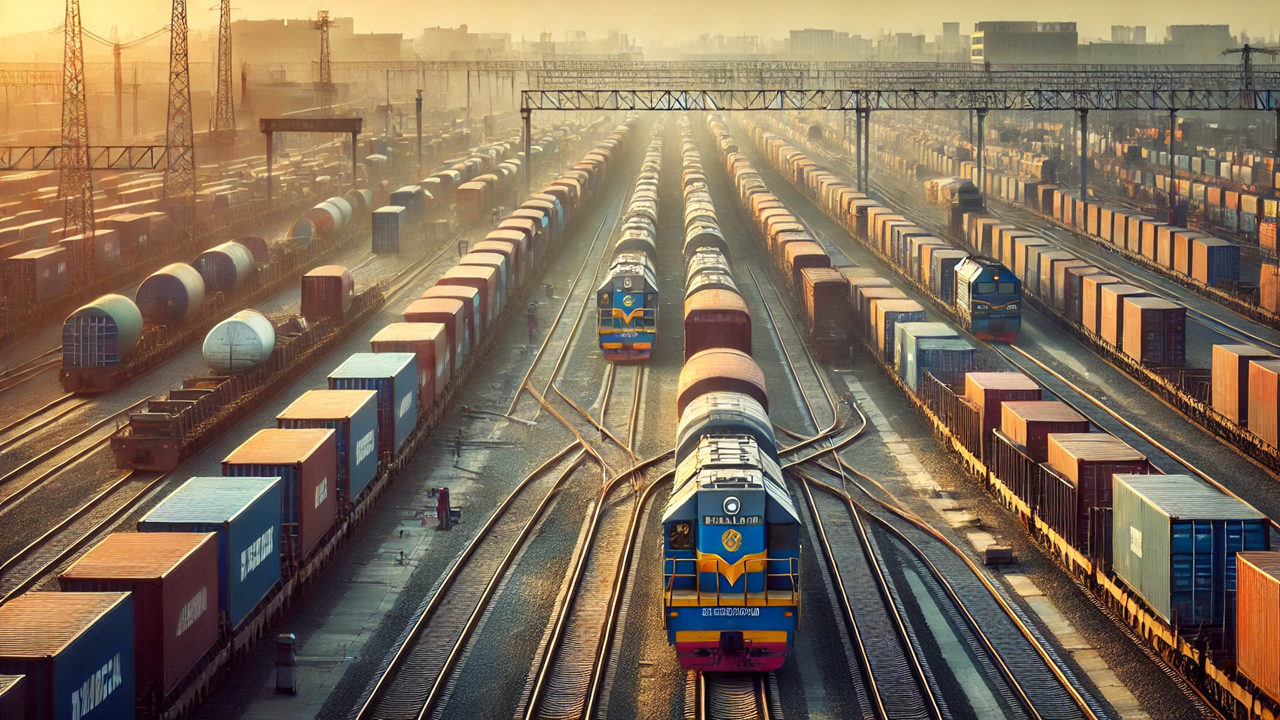AfDB, Deutsche Bank, Société Générale Mobilize $1.2 Billion for Tanzania’s Standard Gauge Railway Expansion
Tanzania’s Ministry of Finance aims to raise funding from international debt capital markets to finance the construction of a 411-kilometer railway line between Tabora and Kigoma.

The African Development Bank (AfDB), in collaboration with Deutsche Bank and Société Générale, has signed a strategic coordination letter to mobilize up to $1.2 billion for Tanzania’s Standard Gauge Railway (SGR) project. This agreement, announced at the African Investment Forum's 2024 Market Days in Rabat, Morocco, highlights the AfDB's leadership in securing financing for transformative infrastructure projects in Africa.
Tanzania’s Ministry of Finance aims to raise funding from international debt capital markets to finance the construction of a 411-kilometer railway line between Tabora and Kigoma. This $2.3 billion segment forms part of a larger Standard Gauge Railway network linking Tanzania’s key port of Dar es Salaam on the Indian Ocean to Mwanza on Lake Victoria. The extended network will connect Tanzania with neighbouring countries including Rwanda, Burundi, the Democratic Republic of Congo, and Uganda.
The SGR project is poised to unlock significant economic potential in East and Central Africa by creating efficient corridors for mining and agricultural commodities. Additionally, it is expected to enhance cross-border trade, reduce transportation costs, and facilitate industrial development in the region.
Key Roles and Contributions
As the Initial Mandated Lead Global Coordinator, the African Development Bank will play a pivotal role in mobilizing resources for the SGR project. Max Ndiaye, AfDB Senior Director for Syndications, Cofinancing, and the Africa Investment Forum, signed the agreement with Myriam Ouazzani, Deutsche Bank’s Managing Director for Africa, and Randolph Fotso, Société Générale’s Head of DFI Solutions, Development and Structured Export Finance.
The financing structure will be organized in two tranches. The AfDB will coordinate the second tranche, which will attract contributions from development finance institutions (DFIs), Export Credit Agencies (ECAs), bilateral lenders, and multilateral development banks. This syndication strategy will optimize financial resources and broaden the participation of key stakeholders.
Project Impacts and Regional Significance
When completed, the SGR will provide seamless connectivity from the Indian Ocean to Lake Victoria, enabling smoother transportation of goods and passengers. It will also serve as a crucial link for landlocked countries, facilitating their access to global markets. The railway’s potential to integrate regional economies will make it a game-changer for industries, particularly mining and agriculture, while boosting Tanzania’s strategic position as a transportation hub.
Enhanced Collaboration and Commitment
The signing of this agreement marks a significant milestone in Africa’s infrastructure financing landscape. “This coordination letter demonstrates the power of partnerships in driving large-scale development projects,” said Max Ndiaye. “By pooling resources and expertise, we aim to make the Standard Gauge Railway a model of sustainable and inclusive growth in Africa.”
The African Development Bank has committed to working closely with Deutsche Bank, Société Générale, and other financing partners to ensure the successful execution of this landmark project. Together, they aim to not only meet Tanzania's infrastructure needs but also set a precedent for similar projects across the continent.
The SGR project exemplifies Tanzania’s and the region’s commitment to achieving sustainable development goals, improving trade efficiency, and fostering economic resilience.










